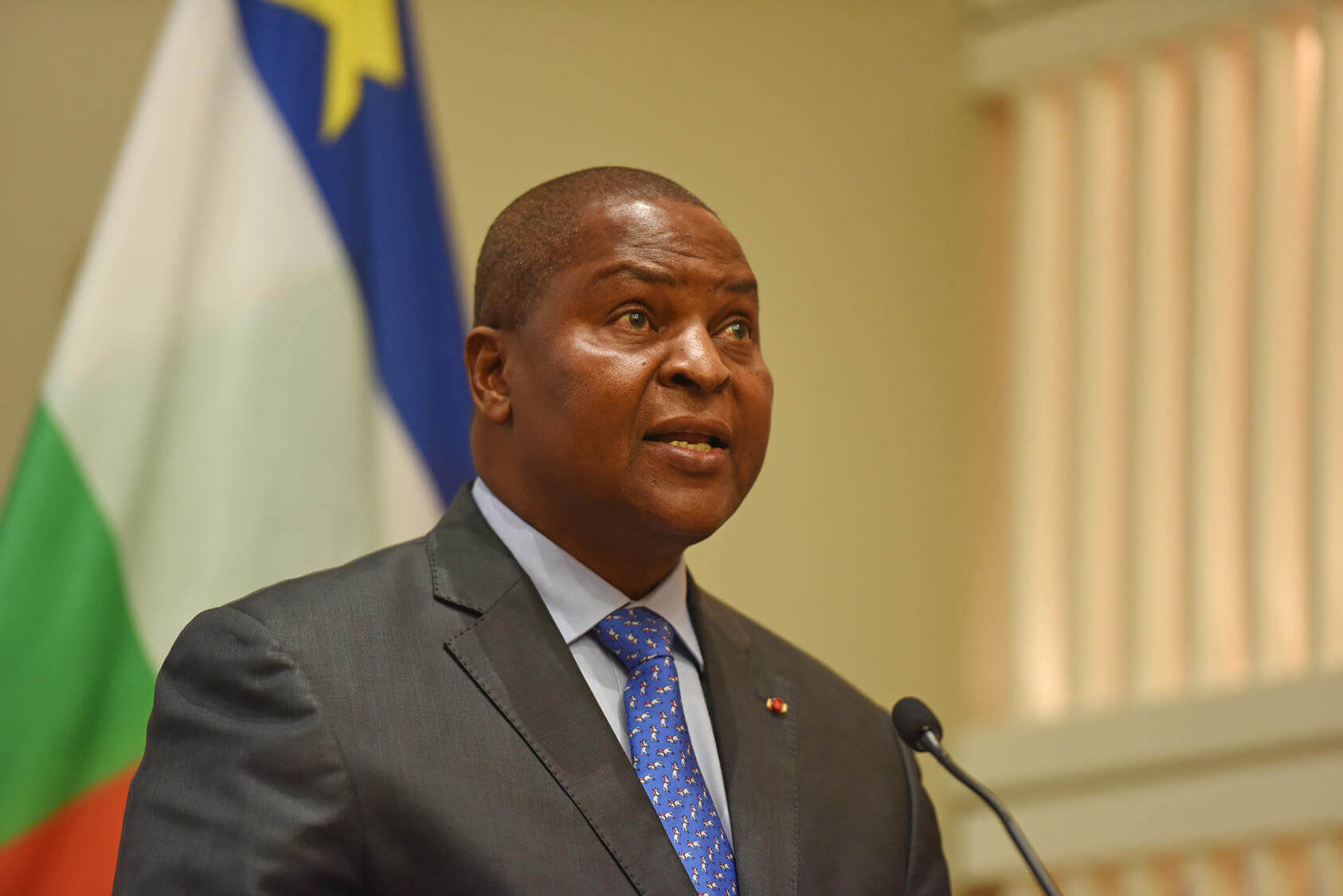On Friday, Central African Republic (CAR) President Faustin-Archange Touadéra announced a unilateral ceasefire in the government’s battle against rebel militia, saying that he hoped this would pave the way for peaceful negotiations. He further said that this would open up avenues for the delivery of humanitarian aid and other basic services.
To this end, he declared: “It is to give peace a chance that I am here to announce to you this evening the end of military operations and all armed action on the whole of the national territory.”
The government’s ceasefire was welcomed by the principal rebel alliance, the Coalition of Patriots for Change (CPC), whose spokesperson, Abakar Sabone, said the CPC would honour the ceasefire so long as the government did. He remarked, “A ceasefire is a good thing ... but we are waiting now to see how it is executed on the ground.”
Nonetheless, the ceasefire has been celebrated by international actors. United Nations Secretary-General António Guterres called it a “critical step.” Guterres’ spokesperson, Stéphane Dujarric, expressed hope that this would result in the fulfilment of the Joint Roadmap for Peace in the Central African Republic, which was adopted by the International Conference on the Great Lakes Region back in September, as well as the 2019 Political Agreement for Peace and Reconciliation.
Dujarric wrote in a statement: “The Secretary-General urges all parties to engage constructively through an inclusive political dialogue with a view to making tangible progress in the peace and reconciliation process in the Central African Republic.”
The ceasefire was also hailed as a positive development by the G5+, which called for “strict respect for human rights and the rule of law, including through the pursuit of concrete actions to combat impunity, as well as a commitment to comply with the requirements of international humanitarian law.”
The G5+ statement was signed by the ambassadors of the United States, the European Union and France, as well as representatives from the World Bank, the Commission of the Economic Community of Central African States in the Central African Republic, the United Nations, and the African Union.
The latest announcement by the government comes on the heels of a CPC attack two weeks ago on a small convoy of semi-trucks last week that killed 20 civilians.
The CAR has been embroiled in conflict and instability ever since former President François Bozizé was ousted from power in 2013. Although Touadéra has been in office since 2016, rebel groups continue to control vast areas of land. This conflict has led to the displacement of around five million people.
The conflict escalated around the turn of the new year, when Bozizé was barred from contesting the presidential election in January, in which Touadéra secured re-election.
Bozizé was ousted from power via a coup in 2013 and Touadéra previously served as the prime minister under the former leader, who led the country from 2003 to 2013.
Since Bozizé’s removal from power, the CAR has become a hotbed for conflict between the country’s minority Muslim community and the Christian and animist groups. This is due to the fact that Bozizé’s ouster was driven by the Seleka rebel coalition, which is largely comprised of Muslims.
Consequently, fighting between Muslim and Christian militias has left much of the country under militia control, undermining the legitimacy and power of the government. Although France intervened in 2016 to usher in democratic elections that saw Touadéra rise to power, the underlying tensions that drove the conflict following the 2013 coup remain.
In fact, back in March, Bozizé officially assumed control of the CPC, which continues to demand the resignation of Touadéra.
Although the latest ceasefire could potentially resolve some of these tensions, similar agreements have been reached in the past only to later be ignored or break down. Furthermore, despite Touadéra pledging to speak with the CPC directly following his re-election, these talks have yet to materialise.
CAR Government Declares Unilateral Ceasefire in Long-Drawn Battle Against Rebel Militia
The latest announcement by the government comes on the heels of a CPC attack two weeks ago on a small convoy of semi-trucks last week that killed 20 civilians.
October 18, 2021

Central African Republic President Faustin-Archange Touadéra SOURCE: UNITED STATES INSTITUTE OF PEACE
